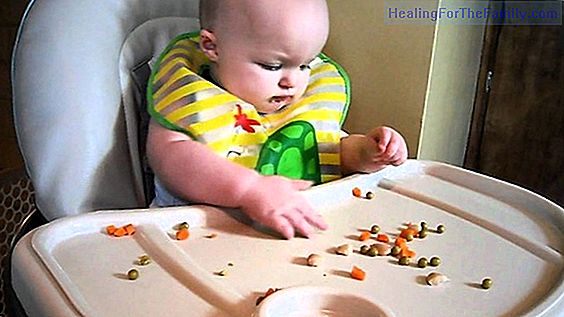Tips to avoid postpartum anemia
Anemia or lack of iron is one of the most frequent problems during pregnancy. If the anemia in pregnancy can harm the development of the baby , we must also take into account that anemia in the postpartum that affects the mother. Discarded a health problem, anemia is caused by a lack of iron and tha
Anemia or lack of iron is one of the most frequent problems during pregnancy. If the anemia in pregnancy can harm the development of the baby, we must also take into account that anemia in the postpartum that affects the mother.
Discarded a health problem, anemia is caused by a lack of iron and that leads directly to food during pregnancy. We have some tips to avoid postpartum anemia.
How to recognize postpartum anemia

After delivery, it is very normal for you to be physically exhausted. Surely you will also notice a mental exhaustion and believe that you lack the strength to take responsibility for everything that lies ahead. Fatigue after childbirth alone is not a symptom of anemia, because the baby's arrival exhausts as you never would have imagined.
But if that exhaustion you feel, that drowsiness and that almost inability to do anything is accompanied by paleness, headache, dizziness or leg cramps, you better consult your doctor if it is a problem of postpartum anemia.
How to avoid postpartum anemia
1.Medical controls: Postpartum anemia is prevented in advance, taking care of you during all stages of pregnancy and following the medical check-ups that assure you that everything is going well in relation to your health and the health of the baby.
2. Balanced diet: The most important preventive factor when it comes to avoiding postpartum anemia is a balanced healthy diet that contains all the vitamins and nutrients.
3. Increase the iron intake in pills: It is not superfluous to increase your iron intake during pregnancy, especially from the second trimester, because the time of delivery will make you lose a lot of blood.
4. Iron-rich foods: Try to consume during pregnancy iron-rich foods such as spinach, Swiss chard, grapes, soy, lentils, egg yolks and fish. This ensures that your iron amounts in the body are maintained until the moment of delivery.
5. More vitamin C: In addition to consuming foods rich in iron, it is better to take more vitamin C, which is the one that deals with the absorption of iron. Citrus fruits, strawberries, kiwis or peppers should not be lacking in your diet during pregnancy.
Laura Vélez. Editor of Guiainfantil.com












